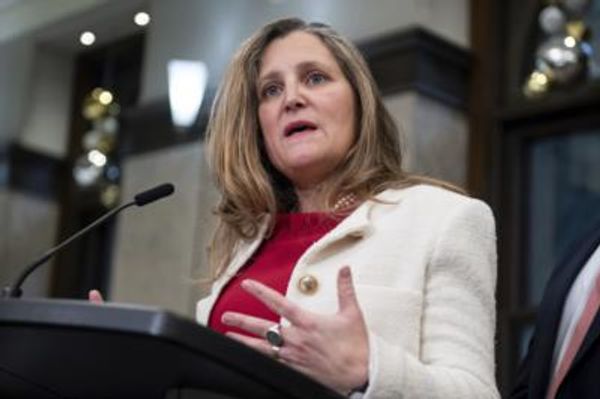
Washington (AFP) - US President Joe Biden and top Republican Kevin McCarthy prepared Monday for their first one-on-one talks in months, with just 10 days left to stop the government tumbling into a calamitous default on its $31.8 trillion debt.
The high-stakes White House meeting was scheduled after Biden returned from a trip to Asia early to hammer out a deal ahead of the US Treasury's June 1 cutoff date for Congress to authorize more borrowing.
Debt limits are raised periodically to cover repayments on loans that have already been approved and spent, but House Republicans are insisting this time that averting a default must be paired with deep cuts to bring down the country's $1.5 trillion deficit.
The on-again, off-again discussions sputtered through the weekend, with McCarthy's team and White House negotiators meeting for more than two hours on Sunday night and another three on Monday.
McCarthy told reporters in Congress ahead of meeting Biden that no agreement had yet been struck but added that negotiations were in "a right place to put us on the right path."
He repeated a favored analogy casting the US debt as a child's credit card, and adding that responsible parents wouldn't keep upping the limit without requiring their offspring to rein in their spending.
"Our credit card, our debt limit, we have charged so much (on) that, it's bigger than our economy.And would you just raise that debt limit or would you look at ways to do something different?" he said.
'Red line'
Biden and McCarthy spoke by phone Sunday as the president flew home from a G7 summit in Japan, with the speaker describing the call as "productive."
Republicans insist on spending less money in fiscal year 2024 than 2023, calling it a "red line."
The White House has offered a freeze for 2024 in exchange for Republicans supporting tax increases for corporations and wealthy Americans but McCarthy has rejected the idea.
The Biden administration has offered to limit spending on some domestic programs but wants the Pentagon to share in the cuts.
Republicans have pushed for boosted military and border security spending, with major rollbacks to non-defense programs.
Disputes also remain over what a White House official characterized as increasingly hard line Republican demands for beefed-up work requirements for social welfare programs.
Biden points out that Republicans raised the borrowing cap three times under former president Donald Trump without threatening to default on the country's debt obligations.
"It's time for the other side to move from their extreme positions," he said at a press conference before leaving Japan.
If lawmakers fail to raise the borrowing cap, the government will default on its debt obligations for the first time in history, with potentially catastrophic results.
Many experts say that in a worst-case scenario global stock markets would melt down as the US economy lurches into a downwards spiral, killing millions of jobs.
'Hard deadline'
The president is being pressured by progressives in his party to rely on the Constitution's 14th Amendment -- which states that the validity of public debt "shall not be questioned" -- to bypass Congress and increase the limit on his own.
But he and Treasury Secretary Janet Yellen cautioned that the courts would not be able to resolve any legal disputes quickly enough to meet the deadline.
"We expect to be unable to pay all of our bills in early June, and possibly as soon as June 1," Yellen told NBC at the weekend, confirming that her previously-estimated cut-off date had become a "hard deadline."
She added that the odds of the government reaching June 15 having paid all of its bills was "quite low."
Even if McCarthy and Biden can hammer out a broad deal, anything they agree to will need to be shepherded through the House, where they face pressure from hardliners on both sides not to make too many concessions.
Further complicating the timeline, the Senate is out this week, while the House is slated to be in recess on Friday ahead of Memorial Day weekend.
Republican negotiator Patrick McHenry said the talks at "a very sensitive point."
"I'm concerned about getting a deal that can pass the House, the Senate, and signed by the president.It's a complicated piece of math," he told reporters.







